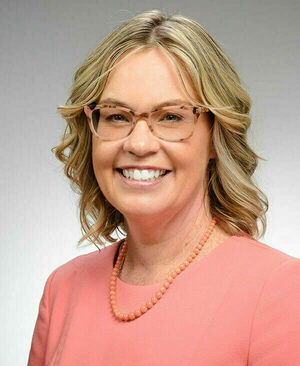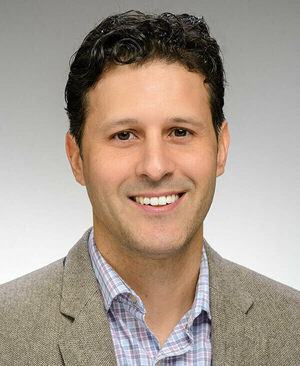
American studies and history professor Kathleen Sprows Cummings, who has led the Cushwa Center for the Study of American Catholicism for the past 11 years, will step down from the position in June. Notre Dame theologian and ILS faculty fellow David Lantigua will become co-director along with historian Darren Dochuk.
Cummings, the Rev. John A. O'Brien College Professor of History, has been associated with the center for nearly 30 years, starting when she arrived at the University as a doctoral student in history.
“It’s hard to overstate the importance of the Cushwa Center in my academic life; it’s been larger than any other institution,” said Cummings, who served as its associate director from 2001 to 2012. “I planned just to stay a couple of years and move on to somewhere else, but it was just a great place to be.”
Cummings credits Cushwa founding director Jay P. Dolan as being instrumental in her development as a historian and scholar.
“I remember as a Ph.D. student saying to him that not enough had been written about women in the Catholic Church, and he said, ‘You’re right. You do it.’”
And that she has, including her 2010 book New Women of the Old Faith: Gender and American Catholic Identity in the Progressive Era, which won three Catholic Press Association Awards. She’s also written numerous journal articles and reviews centered on women and faith.
“Kathy’s expertise, dedication, and enthusiasm have strengthened the Cushwa Center in so many ways and meant a great deal to people around the country and world who study Catholicism,” said Sarah Mustillo, the I.A. O’Shaughnessy Dean of the College of Arts and Letters. “And now, I look forward to seeing how Darren and David will shepherd and advance the work being done at Cushwa.”
A marshaling of perspectives
Lantigua’s research focuses on Catholicism in the colonial history of the Americas and the theology and social thought of Pope Francis, the first pope from the global South.
“By anchoring the study of American Catholicism in historical and theological inquiry, I hope to preserve and strengthen the Center’s ongoing intellectual contribution to academia and the broader Church on critical issues of the past and present,” said Lantigua, who co-directs the Catholic social tradition minor and is a faculty fellow of the Kellogg Institute for International Studies and the Institute for Latino Studies.

With Latin America as the most populous region of Catholicism in the world, and the growing demographic of U.S. Latino Catholics, Lantigua said the optics of American Catholicism are shifting in fascinating ways. He wants to make that reality visible.
“In addition to the U.S. Hispanic Catholic population, there are also ethnic traditions of American Catholicism among African/African American, Asian, and Indigenous American populations, and their historical presence raises acute questions surrounding pluralism, racism, and migration,” he said.
Dochuk, the Andrew V. Tackes College Professor of History, and Lantigua, an associate professor in the Department of Theology, lauded Cummings’ vision and contributions and said they’re honored to continue Cushwa’s vitally important work. Dochuk’s expertise and experience includes U.S. religious history, energy, and the environment.
“At all levels, from Rome to the grassroots, Catholics and the Catholic Church have sought to address social and environmental challenges wrought by energy dependencies through a marshaling of moral, theological, and humanities perspectives,” said the co-executive editor of the journal Modern American History, which is currently based at Notre Dame.
“I look forward to helping place the Cushwa Center at the heart of those ongoing conversations, and to making the historical study of Catholicism and American religion — Cushwa’s forte — relevant for clearer understanding of current climate-related circumstances.”
Dochuk welcomes the chance to connect Cushwa with other units on campus and centers beyond Notre Dame’s borders that are animated by similar questions about the nature of Catholicism and faith in the modern world — particularly along fresh lines of inquiry at the intersections of religion, energy, sustainability, social action, and environment.
“This is a dizzying world of change,” said Dochuk. “I am excited to see the Cushwa Center operate as an anchor of sorts, with programming and the provision of historically grounded and faith-informed knowledge geared to a rich plethora of social interests and concerns, scholarly methods and spirits of action.”
Originally published by at al.nd.edu on April 19, 2023. Edited for ILS reproduction.